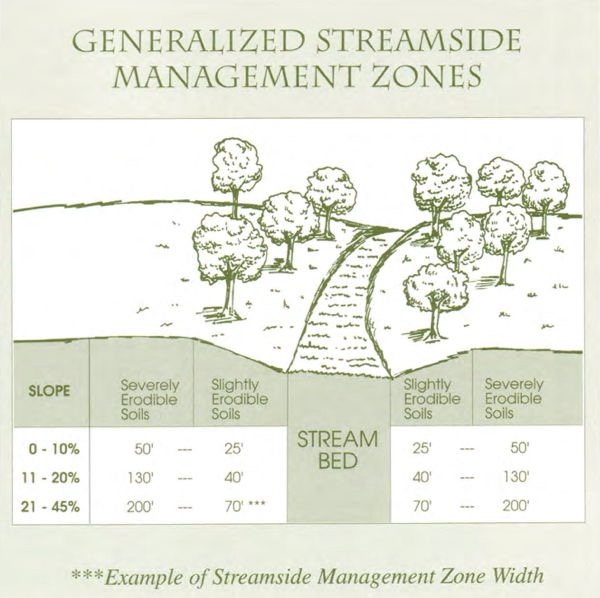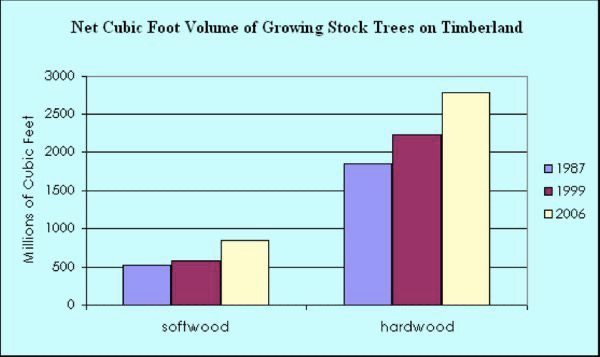NJ Democrats Push Forest Logging Bills On Earth Day
As if the nomination of a former corporate lawyer as DEP Commissioner weren’t enough of an insult and Orwellian nightmare – amid an accelerating collapse – tomorrow (Earth Day) the NJ Senate Environment Committee will hear a package of bills to promote logging. Even the bill descriptions are Orwellian:
- S2001 – Forest stewardship program-establishes for State-owned lands
- S3547 – Forest stewardship, pinelands,
- S3548 – Prescribed burns-set min. acreage goal & schedule in pinelands area & Statewide
- S3549 – Forest stewardship plan-required for lands acquired
- S3550 – Forest stewardship plans-provide that municipal approval is not required
Senate Environment Committee Chairman Bob Smith has been pushing this ill advised legislation for over a decade. He is responding to the sham and misleading self interested lobbying of the NJ Audubon Society, the NJ Farm Bureau, the forest products industry, and professional forestry consultants. NJ Audubon reveals that truth:
The invitation from committee chair, Senator Bob Smith, requests technical information on the value of forest management plans on publicly-owned lands in the state. Information from hearing experts will inform members about science-based practices and sound policies to protect NJ’s valuable resources, forests.
The NJ Farm Bureau makes their economic interests very clear:
Landowners with mostly forested properties now will have ways to tap some of the equity in their land while retaining the farm. A forest easement purchase program allowed by policy in the RMP is included in the new land conservation rules being considered by the Highlands Council. Farm Bureau with the Department of Agriculture will make sure that the Council removes any obstacles to timely implementation of such a program in which the landowner can continue to follow a Woodland Management or Forest Stewardship plan to continue Farmland Assessment.
Remarkably, even Gov. Christie – no friend of NJ’s forests, the Highlands, or public lands – vetoed the Forest Stewardship bill the Democratic legislature passed back in 2012.
So, I fired off this note:
Dear Chairman Smith and members of the Senate Environment Committee:
I write to strongly oppose the package of bills regarding “forest stewardship”.
I will confine this note to a few brief points, as the bills are up for discussion only (and I am on the road today), and reserve my right to revise and extend these comments with more detailed and substantive testimony.
1. Climate Emergency – Carbon sequestration
The bills, the proposed DEP’s draft “Forest Action Plan”, and current Forest Stewardship planning and field practices not only fail to consider and promote maximum carbon sequestration, but they would promote active management practices that significantly reduce current forest carbon sequestration and the prospective capacity to sequester additional carbon.
(See this for links to and analysis of DEP’s draft “Forest Action Plan”:
The bills conflict with the science and carbon sequestration policies and targets in DEP’s Global Warming Response Act 80 X 50 Report (see Chapter 7:
https://www.nj.gov/dep/climatechange/docs/nj-gwra-80×50-report-2020.pdf#page=168
Mature intact forests store far more carbon than “actively managed” and “young forests” promoted by these bills.
Given the climate emergency, the goals of the GWRA, and the sequestration targets set by DEP, these flaws alone should be sufficient to convince legislators to abandon the current version and fundamental “active management” approach of these bill.
2. Conflicts With the Highlands and Pinelands Acts
A fundamental assumption in the Highlands conservation strategy was that fragmenting forests and opening the canopy were to be avoided because they created a host of negative effects and dynamics, perhaps most important was because disturbance increased edge effects, destroyed interior forest habitat, created erosion, impaired water quality, and increased sunlight on the forest floor fueled a proliferation of invasive species.
The bills conflict with this strategy.
3. Lack of Effective Regulatory Oversight
There are huge gaps in NJ laws and DEP regulations regarding practices that may fit the definition of “forest stewardship”. The DEP’s Forestry Wetlands BMP Manual is over 26 years old – adopted before the passage of the Highlands Act and DEP’s C1 waters 300 foot buffer programs – and, among other things, allows just 25 foot buffers and logging on steep slopes, stream buffers, and vernal pools. For details and links, please see:
I would add that the prescribed burn provisions of these laws would exacerbate NJ’s chronic air quality problems, particularly with respect to fine particulate pollution, a significant health threat and regulatory compliance issue that is completely ignored, see:
4. Forests Are Public Lands – “Active Management” Impairs Public Uses
5. The bills would pre-empt local government, the most democratic institution in NJ
6. The premises and scientific rationale for “active management” are dubious and challenged by credible independent science
a) Prescribed burns do not reduce
wildfire risks. Those risks are a function of climate, drought, temperature, relative humidity and wind. b) “Active Management” to create “young forest” habitat is illusory and destroys other habitat and conservation values.
Flawed Conservation Rationale
We are left scratching our head, because the bills are at odds with the fundamental conservation strategy that led to the passage of the Highlands Act.
The prime conservation imperative in passage on the Highlands Act was preservation of the existing large tracts of contiguous forest, maximization of forest canopy cover, and prevention of fragmentation.
Those regional management objectives were initially espoused by the US Forest Service:
- The Highlands serve as a major migratory flyway for many neotropical bird species, many of which populations are in decline. Of particular concern to ornithologists are the 70 to 75 species of interior nesting neotropical migrants such as the red-eyed vireo, American redstart, Kentucky warbler, and eastern pewee. These species require large undisturbed forest patches.
- Fragmentation and alteration of habitat continue to pose the greatest threat to the biological communities in the Highlands. The rapid expansion of urbanization encroaches on and fragments habitat, destroys individuals as well as populations, and potentially threatens the continued existence of many biological communities. Degradation of habitat by direct destruction or indirectly through pollution, erosion, introduction of invasive species, or fragmentation threatens the existence of species, diminishes natural communities, and reduces genetic variability. ~~~ NJ/NJ Highlands Regional Study (US Forest Service, 2002)
Active management to create “young forests” would destroy habitat for interior forest species and other conservation and water resource values provided by intact mature forests.
c) NJ Forests are diverse – they are not “single age class” or “middle aged” as claimed by proponents of this legislation. See US FWS studies cited above. DEP’s own forest planning documents and data also refute these claims.
7. NJ DEP economic research proves that preserved forests provide far more “ecological services” and economic value that “actively managed” forests subject to “treatments” (i.e. logging)
DEP’s own Report on “Natural Capital”, which found that forests have far more economic and ecological value as forest, than as for logging or timber:
The Corzine DEP produced a report: Valuing New Jersey’s Natural Capital: An Assessment of the Economic Value of the State’s Natural Resources. That report found that forests have far more economic value as forest than harvested as commercial logging. DEP needs to dust off that report and apply it to future management policies.
8. All the supporters of the bills have private economic interests and elevate them above competing public interests.
The NJ Farm Bureau and others like NJ Audubon have openly testified that the objectives of the legislation are to re-establish a commercial logging industry in NJ.
I previously exposed this economic motivation to restore an in state commercial logging industry during the controversial debate on proposed “Forest Stewardship” legislation, by quoting the testimony of the NJ Farm Bureau:
“In the early 1980’s, the state stopped participating in timber sales. So the state lands that were managed in timber, up to that point in time, were an important part of attracting the timber industry to the State. The State owns half or more of the wooded lands, so its been on the back of smaller producers to attract competition to the state. And what they’ve ended up with is the one guy who wants to come and cut in NJ, kind of setting the market price. And so we’ve had a depressed value of our wood products.
We see, by the State re-entering into a managed timbering process, that more vendors will be attracted to come into the state and then they’ll pick up those smaller [private] parcels … and we’ll see an economic benefit to our state, for the private forest lands as well as the public lands, because landowners will have more options in how they do those managed cuts. […]
And then its the ability of the State to recoup those costs through the sale of the timber. …
With the increased participation by the state we will see increased competition amongst those that harvest these products and better prices which them improves the overall wood and timber industry in the state.”
It’s obvious that this legislation is about logging NJ forests under cover of various sham ecological and conservation claims.
9. The bills are a component of a national campaign to expand commercial logging, particularly in mature northeastern hardwood forests
10. It is an insult to the legacy of Earth Day that bills that would promote logging of public forests and ignored and exacerbate the climate emergency are considered on Earth Day
Senator Smith has been pushing this ill advised legislation since at least 2012.
It’s time to abandon the entire approach, if only for the climate emergency.
Respectfully,
Bill Wolfe



Pingback: WolfeNotes.com » After Murphy DEP Scales Back Logging, NJ Audubon Expands Dirty Dealings To Promote Sparta Mountain Logging – Opens New Front In Logging War
Pingback: WolfeNotes.com » Gov. Murphy Issues Environmental Excellence Award To Billionaire Wall Street Elite Greenwasher
Pingback: WolfeNotes.com » The Future of NJ’s Forests – At Risk From Climate, Logging, Development, & DEP Management
Pingback: WolfeNotes.com » NJ Senate Earth Day Hearing Agenda Will Focus On Climate “Adaptation”
Pingback: WolfeNotes.com » Murphy DEP Working With Forestry Industry To Promote The “Young Forests” Policy That Led To Glassboro Clearcut